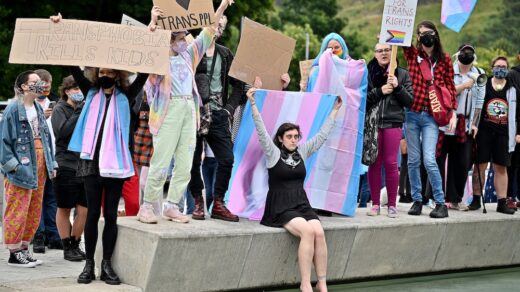Healthcare discrimination disproportionately harms LGBTQ+ patients’ mental health
Author: Daniel Villarreal
LGBTQ+ adults are twice as likely as non-LGBTQ+ adults to report negative experiences while receiving health care, according to recently released findings from The Henry J. Kaiser Family Foundation (KFF), a non-partisan organization focused on health policy.
These negative experiences may also be taking a toll on LGBTQ+ people’s mental health, making queer people 21% to 27% more likely than non-LGBTQ+ people to report higher levels of anxiety, loneliness, or depression. LGBTQ+ adults are also twice as likely as non-LGBTQ+ adults to report not receiving mental health services in the past year despite needing them.
Adults with nearby friends and families or large support networks were less likely to experience severe mental health crises, regardless of whether or not they identify as LGBTQ+. But only 29% of LGBTQ+ adults said their medical providers asked about their work, housing situation, or access to food or transportation, all factors that can seriously impact people’s mental health.
Despite these findings, KFF’s report also found that 81% of LGBTQ+ respondents said that medical professionals understood and respected their cultural values and beliefs and also explained things in a way they could understand. About 70% said their medical professional spent enough time with them during their visits, and 76% said the professionals involved them in decision-making about their care.
“The challenges revealed in this data also identify areas where additional attention to, and policy-making around, social determinants of health, provider training, non-discrimination protections, addressing stigma, and combating social isolation, could improve LGBT people’s well-being, including in terms of access to care,” the study concluded.
The findings were taken from KFF’s 2023 Racism, Discrimination, and Health Survey. The survey was conducted from June 6 to August 14 among a nationally representative sample of 6,292 U.S. adults using online and telephone surveys.
Actual Story on LGBTQ Nation
Author: Daniel Villarreal





